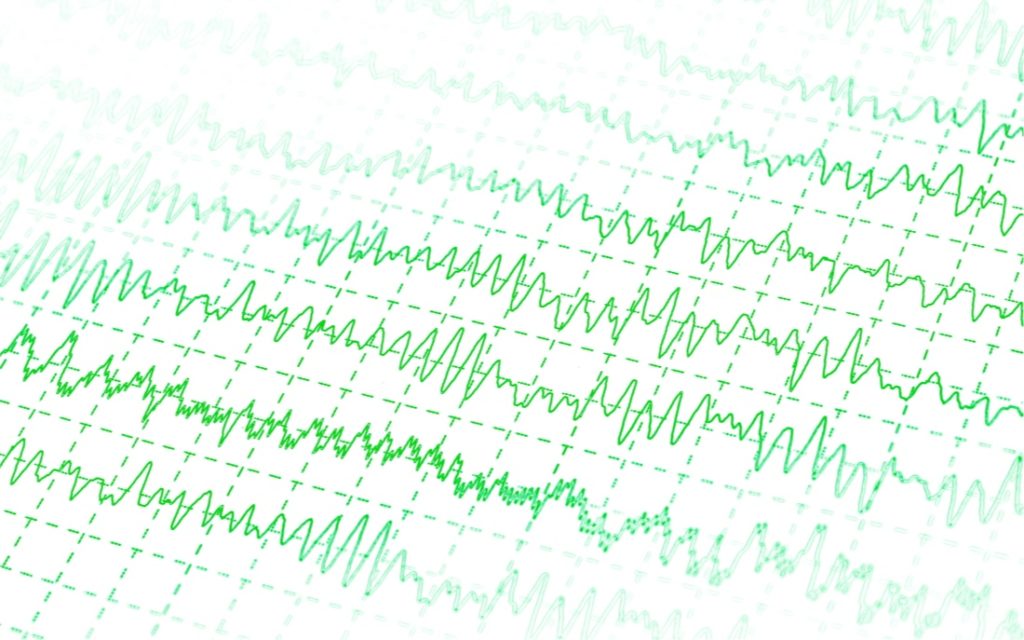Quick Hits
Daily brief research updates from the cognitive sciences

There have been numerous brain areas associated with empathy and feeling for others – some of which I have written about in other places. However, researchers at the Institute for Basic Science in South Korea have now discovered a new signature and underlying neural mechanisms to empathy.
Empathy is a critical aspect of human sociality giving us the capacity to sense, feel, and share the emotions of others. But the biological mechanisms are also shared with other animal – including rodents. This study focused on “observational fear”, commonly used in scientific research as a basic form of emotional contagion and affective empathy.
In this experimental protocol, one mouse is given a small electrical shock, poor mouse. Another can see this through a transparent screen. The observer mouse will also immediately exhibit a fear response and freeze. What the researchers were able to do is to see that this empathetic fear response is different to the first-hand experienced fear response and is coordinated by brain waves that are synchronised between different brain regions. Specifically, two areas, one called the Anterior Cingulate Cortex (ACC) which helps with attention, and a part of the Amygdala (BLA) which is involved in fear and threat detection.
In the observer mice there was a pattern of increased slow waves, 5-7Hz (theta brain waves), between these two regions. In the mice that experienced the shock, and therefore a fear response, slow waves were only seen in the Amygdala. This suggests two different patterns. The researchers then tested the causality to see if this does indeed trigger this behaviour. What they found is that if they inhibited the rhythms in the ACC-BLA circuit then it significantly impacted the observational fear freezing.
Furthermore, this seems to be controlled by another regions in the brain known as the hippocampus which is generally responsible for memory and navigation. Hippocampus theta rhythms seem to coordinate these regions – similarly by disrupting the hippocampal theta rhythms observational fear freezing was inhibited or increased.
So, this gives us some clear evidence that empathy is also driven by coordination between different brain regions and coordinated by the hippocampus. Whether this is for all types of emotions is another question but intriguing it is.
For us human beings there is no obvious way to synchronize theta brain waves – so no help on the horizon for those lacking empathy – or to turn it down either!

Andy Habermacher
Andy is author of leading brains Review, Neuroleadership, and multiple other books. He has been intensively involved in writing and research into neuroleadership and is considered one of Europe’s leading experts. He is also a well-known public speaker, speaking on the brain and human behaviour.
Andy is also a masters athlete (middle distance running) and competes regularly at international competitions (and holds a few national records in his age category).
References
Seong-Wook Kim, Minsoo Kim, Jinhee Baek, Charles-Francois Latchoumane, Gireesh Gangadharan, Yongwoo Yoon, Duk-Soo Kim, Jin Hyung Lee, Hee-Sup Shin.
Hemispherically lateralized rhythmic oscillations in the cingulate-amygdala circuit drive affective empathy in mice.
Neuron, 2022
DOI: 10.1016/j.neuron.2022.11.001
More Quick Hits
Brain Scans Can Predict Your Political Affiliation
Quick HitsDaily brief research updates from the cognitive sciences rain scanning of political partisans is not new and it has long been reported that brain scans can predict political affiliation. But those studies were scans of political partisans...
Children with Same-Sex Parents Are Socially Well-Adjusted
Quick HitDaily brief research updates from the cognitive sciences his is not the first study to report that children of same-sex parents are well adjusted, there are plenty, but it is one of the first to be representative and hence gives some...
Simple Exposure to New Things Makes Your Brain Ready to Learn
ouldn’t it be great if we could learn things with no effort? Well, actually we often do, and children learn vast quantities of information, and knowledge with little to no effort – think of how well we learn languages which become fiendishly...
So, Can Cranberries Improve Memory?
tend to be hesitant to report on studies of single foods doing amazing things (because many do), but this piece of research still caught my eye. So, what did this group of researchers from the University of East Anglia find? Well, they...
The Real Problem with Social Media: It Induces Dissociative States
Quick HitsDaily brief research updates from the cognitive sciences ocial media seems to hijack our brains – or at least according to popular narratives. Most of us have experienced this where you get stuck in an endless stream of content,...
Adventurous Play Boosts Mental Resilience in Kids
o, a simple cheap way to help your kids improve all life skills and strengthen mental wellbeing. Too good to be true? Well, this piece of research, just out, finds a fascinating correlation with mental health and kids. This correlation was...






